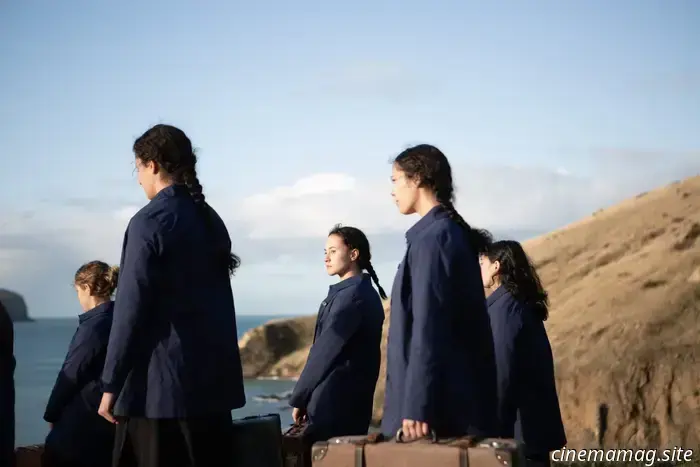
We Were Dangerous Review: A Coming-of-Age Story of Vibrant Independence and Rebellion
The Matron (Rima Te Wiata) of Te Motu School for Incorrigible and Delinquent Girls genuinely believes she is fulfilling God's work through her three educational principles: "Christianize, civilize, and assimilate." This conviction stems from her own experience as a lost Māori teenager searching for purpose. She abandoned her heritage, accepted the idea that British colonization of New Zealand was beneficial, and dedicated her life to instilling that same white indoctrination in the young girls under her care. While she may think only one of them will emerge as a "respectable woman," in her eyes, one success justifies countless failures.
However, what constitutes a "failure" in this context? For The Matron and her superiors, it is any woman who does not develop into a devoted, submissive wife whose only role is to raise children, contributing to an insidious eugenics agenda aimed at eliminating Māori "barbarism." To someone with compassion, it refers to anyone who dares to resist the atrocities imposed upon them. Despite claiming to act in God's name, this school and its supporters are creating slaves for a misogynistic system that benefits men—so much so that some doctors view this carceral boarding school as an ideal setting for experimentation. After all, these are orphans, outcasts, and criminals. Who would notice if they perish while testing new sterilization techniques?
Director Josephine Stewart-Te Whiu and screenwriter Maddie Dai (both making their feature debuts) set their coming-of-age film We Were Dangerous against this dark chapter of New Zealand's history that Indigenous people across the globe know too well. Inspired partly by Dai’s great-great-grandfather's imprisonment on an island, they portray a failed escape attempt by Nellie (Erana James) and Daisy (Manaia Hall) as they try to move to a remote island of their own. This move would not only make another escape nearly impossible but also mitigate the risk of pregnancy by ensuring that no man is available other than the former leper colony’s caretaker (Barry, played by Stephen Tamarapa). The children would be left with only each other, The Matron, and God.
Narrated by Te Wiata’s character—acting as caretaker to guide us through the circumstances that brought her, Nellie, Daisy, and newcomer Lou (Nathalie Morris) to this place—the film explores how blind faith can lead to madness. Her tone in these voiceovers is softer, allowing audiences to hope that her cruelty stems from a misguided sense of “tough love” rather than sadism masquerading as altruism. Her own Māori identity prompts us to ponder when she might recognize her complicity, but the fact remains that religion can wield considerable influence, regardless of how it has been weaponized by men. Once The Matron prioritizes the community above these girls' individual lives, all bets are off.
Nevertheless, We Were Dangerous is propelled by the vibrant independence and defiance of its central trio, confined to a dilapidated hut as punishment for their insolence. The Matron believes Lou—who comes from a respectable white family and has an “ailment” she thinks can be overlooked—will help steer Nellie and Daisy away from criminality and paganism. However, the reality is that Nellie and Daisy’s justified refusal to conform is more likely to corrupt Lou to their cause. Thus, the question arises: how far will these friends go to disrupt the status quo once the reality of their imprisonment becomes clearer? Will they risk their safety to fight for their collective, just as the school sacrifices them for its own ends?
The script does become somewhat manipulative toward the end, attempting to shield us from the truth for a more dramatic climax, but it is handled deftly enough not to mar the overall experience. The frequent flashbacks are helpful—as we become accustomed to the time shifts, even though the last one occurs outside of The Matron’s perspective. Could Dai and Stewart-Te Whiu have achieved their aims without this deceit? Certainly, but it's understandable to seek additional flair in a debut. We Were Dangerous stands strong on its own merits and could have trusted its audience more by keeping us informed. As it is, the only addition is the potential for surprising those who hadn’t already pieced together the overarching narrative.
This sentiment is particularly true because We Were Dangerous shines brightest when Nellie, Daisy, and Lou are together. Separating them may heighten drama, but it detracts from what captivated us in the first place. James, Hall, and Morris display delightful chemistry in their camaraderie—always supporting one another (which holds significance given Lou’s whiteness protects her from some threats that her Māori friends face) and eager to make The Matron's life as miserable as possible. We take joy in their spirit and autonomy, fully aware of just how flawed their situation is, regardless of the constant reassurances that things
Other articles
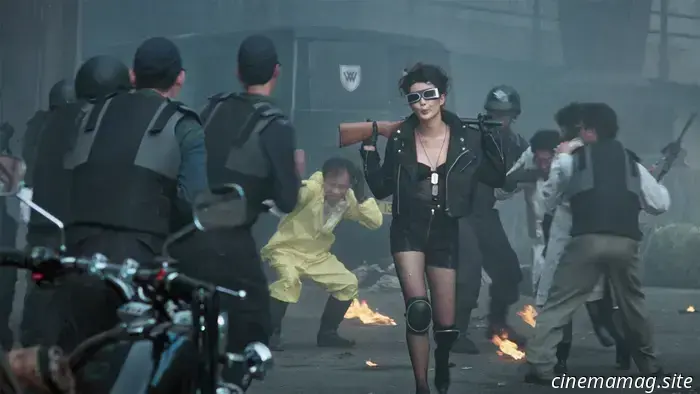 NYC Weekend Watch: The Heroic Trio, Mikio Naruse, John Ford, and More
NYC Weekend Watch is our weekly compilation of repertory events. Museum of the Moving Image is showcasing Johnnie To's The Heroic Trio and To & Ching Siu-tung's Executioners in the See It Big: Stunts! program; John Waters' Serial Mom will be screened on Friday and Sunday; Amir Azizi's Two Dogs will take place on Saturday. Japan Society is presenting an extensive retrospective of Mikio Naruse, which includes many imported films.
NYC Weekend Watch: The Heroic Trio, Mikio Naruse, John Ford, and More
NYC Weekend Watch is our weekly compilation of repertory events. Museum of the Moving Image is showcasing Johnnie To's The Heroic Trio and To & Ching Siu-tung's Executioners in the See It Big: Stunts! program; John Waters' Serial Mom will be screened on Friday and Sunday; Amir Azizi's Two Dogs will take place on Saturday. Japan Society is presenting an extensive retrospective of Mikio Naruse, which includes many imported films.
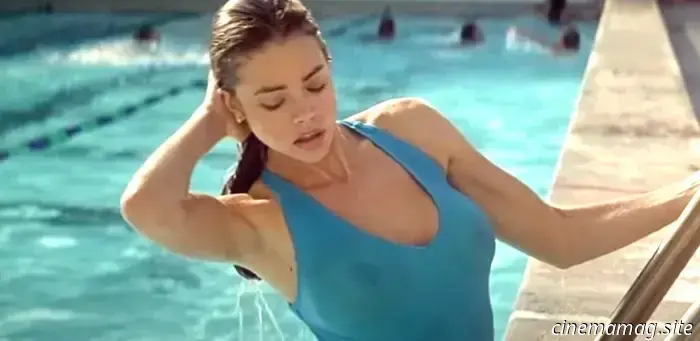 The 13 Most Outrageous Movies We've Ever Watched
The 13 Most Outrageous Movies We've Ever Watched
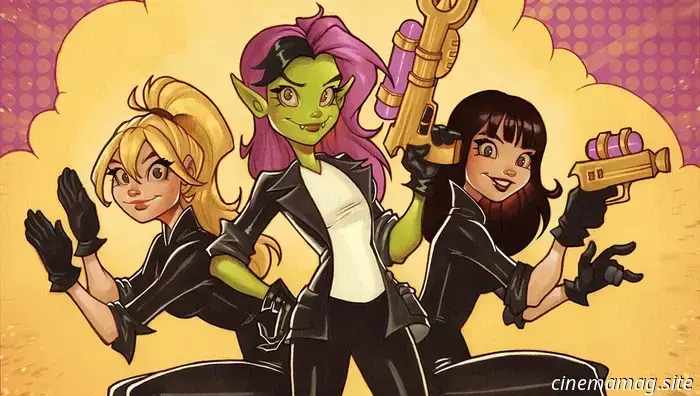 Betty & Veronica Friends Forever: Spy Girls - Comic Book Sneak Peek
Archie Comics is set to release the one-shot Betty & Veronica Friends Forever: Spy Girls this Wednesday. You can check out a sneak peek of the issue below with the official preview… INTRODUCING: MEDUSA DOOM, the teenage daughter of the infamous Dr. Doom! Medusa Doom has traveled from afar to torment the citizens of Riverdale, and only Agents B [...]
Betty & Veronica Friends Forever: Spy Girls - Comic Book Sneak Peek
Archie Comics is set to release the one-shot Betty & Veronica Friends Forever: Spy Girls this Wednesday. You can check out a sneak peek of the issue below with the official preview… INTRODUCING: MEDUSA DOOM, the teenage daughter of the infamous Dr. Doom! Medusa Doom has traveled from afar to torment the citizens of Riverdale, and only Agents B [...]
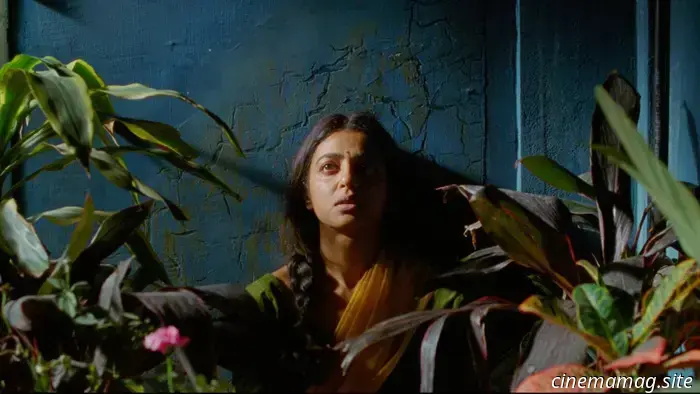 Sister Midnight Review: Quirky Black Comedy Showcases the Contemporary Indian Woman
Recent times have been favorable for films featuring or centered around Indian women. In addition to the Cannes Grand Prix winner All We Imagine As Light, 2024 witnessed the debut or release of Suchi Talati’s Girls Will Be Girls, Sandhya Suri’s Santosh, and Kiran Rao’s contentious selection for Best International Feature, Laapataa Ladies. Alongside this collection
Sister Midnight Review: Quirky Black Comedy Showcases the Contemporary Indian Woman
Recent times have been favorable for films featuring or centered around Indian women. In addition to the Cannes Grand Prix winner All We Imagine As Light, 2024 witnessed the debut or release of Suchi Talati’s Girls Will Be Girls, Sandhya Suri’s Santosh, and Kiran Rao’s contentious selection for Best International Feature, Laapataa Ladies. Alongside this collection
We Were Dangerous Review: A Coming-of-Age Story of Vibrant Independence and Rebellion
The Matron (Rima Te Wiata) of Te Motu School for Incorrigible and Delinquent Girls is convinced that she is fulfilling God's mission with her three educational principles: "Christianize, civilize, and assimilate." Her belief stems from the fact that these principles rescued her as a wandering Māori teenager seeking direction. She abandoned her roots and adopted the belief that the British
